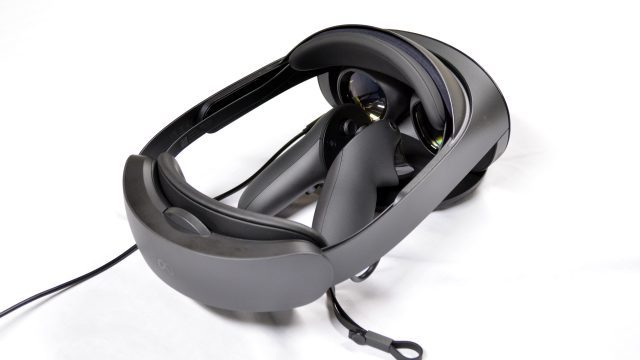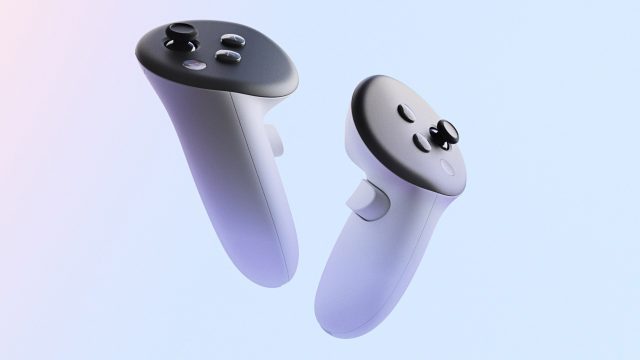A new charging dock from Meta, apparently for Quest 3, has been revealed through regulatory certification. As with Quest Pro’s dock, the goal of the new dock is certainty to streamline headset usage by encouraging users to keep it charged and always up-to-date.
Friction in VR—all of the clunk associated with putting a thing on your head, fitting it, then, going through menus to get to the software you want to use—is a tough challenge the industry has been slowly chipping away at over many years.
One major piece of that friction comes with keeping headsets charged and up-to-date. It’s an all-too-common occurrence for someone to forget to plug in their headset after a session and then realize the battery is dead the next time they have the urge to use it. Worse still, if it’s been a while since they plugged the headset in, it’s likely to need updates to both the core software and specific apps before it’s ready to go.
This is a clear issue, and one that Meta has attempted to address with an official charging dock, first sold alongside the Quest Pro headset. The dock charges both the headset and controllers, making sure everything is juiced and keeping the headset powered on and updated (well, when the auto updates actually work).
It would seem the company was happy with the benefits to retention brought by the Quest Pro dock, as a new charging dock—almost certainly for Quest 3—has been revealed by regulatory certification through the US Federal Communication Agency.
The FCC is tasked with certifying products with electromagnetic emissions to be safe and compatible with regulations. Products utilizing radio, WiFi, infrared, etc. need certification before they can be distributed for sale. Certification by the FCC marks one step closer to the launch of consumer electronics product.
The documentation reveals that the dock includes “wireless charging function for left and right controllers,” apparently up to 2.5 watts. That’s pretty slow compared to what we see from wireless charging on modern smartphones, but may be more than adequate for the Quest 3 controllers which don’t need as much power as a smartphone or the headset itself. The actual Quest 3 headset will continue to charge via direct contact as we can see by the pins revealed on the underside of the headset.
– – — – –
Wireless charging is an interesting change from the Quest Pro dock which exclusively relies on direct-contact charging. One reason for this change is likely that the current method of docking the Quest Pro controllers is quite awkward—sometimes leading to the controllers not charging when it looks like they should be. The headset itself is much easier to place in the proper location.

A Quest 3 dock with wireless controller charging could create more tolerance for mispositioned controllers, leaving less room for user-error.
One big question is whether or not the dock will be included with Quest 3.
Considering Meta’s goal to keep the sticker price of the mainline Quest headsets low, we’d guess it will be made available as an optional accessory. But there’s a chance that Meta deems the dock important enough to the overall user experience that they opt to include it right in the box.
If it did come in the box, this would be the first time the company included rechargeable controllers in its consumer line of VR headsets. All prior consumer headset controllers from Meta have required AA batteries, though it’s always been easy enough to add recharging to the controllers through inexpensive rechargeable AA batteries.
The Quest 3 dock will unfortunately almost certainly not be compatible with Quest 2 controllers because the newer headset is using a new controller which the company calls Touch Plus.

The new controller does away with the tracking ring that has always been present on the company’s consumer VR controllers, and will likely include the hardware necessary for wireless charging.